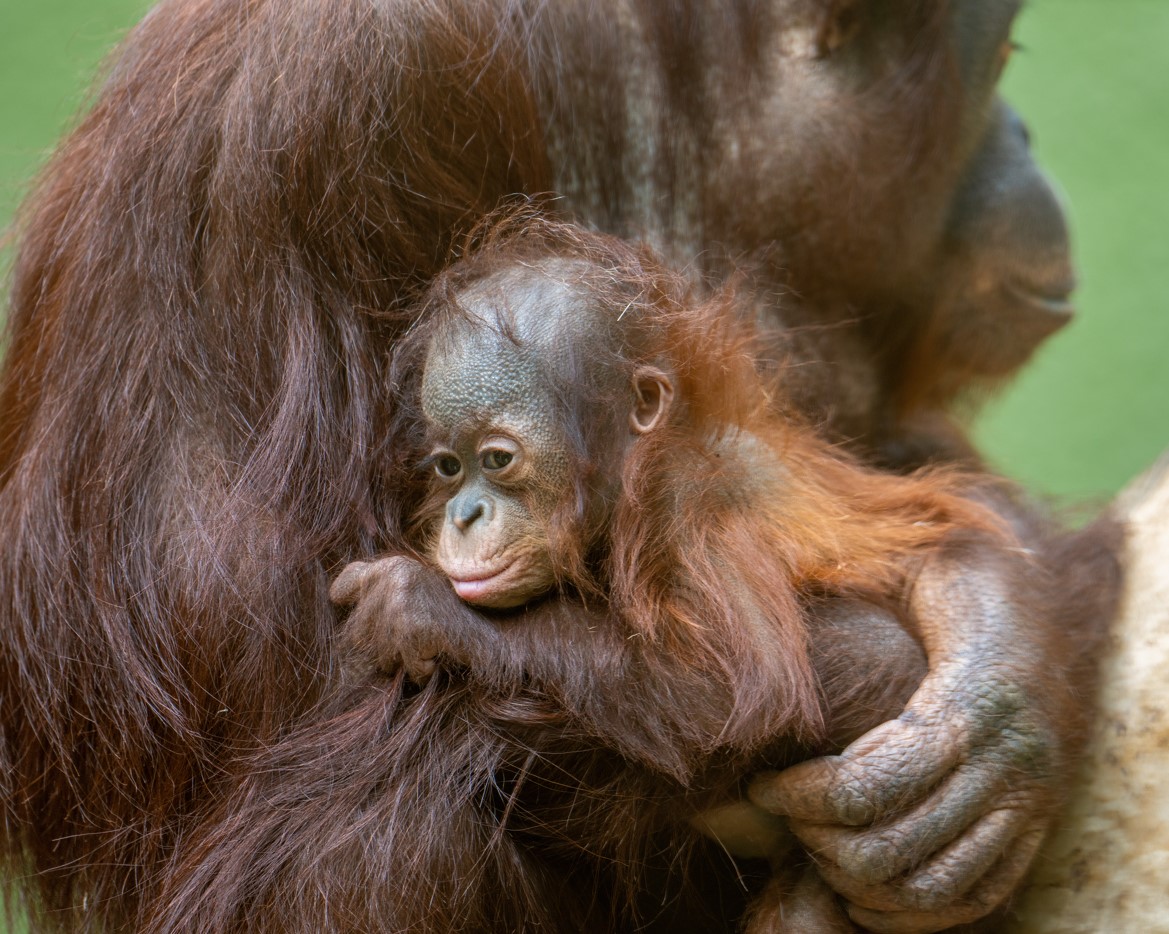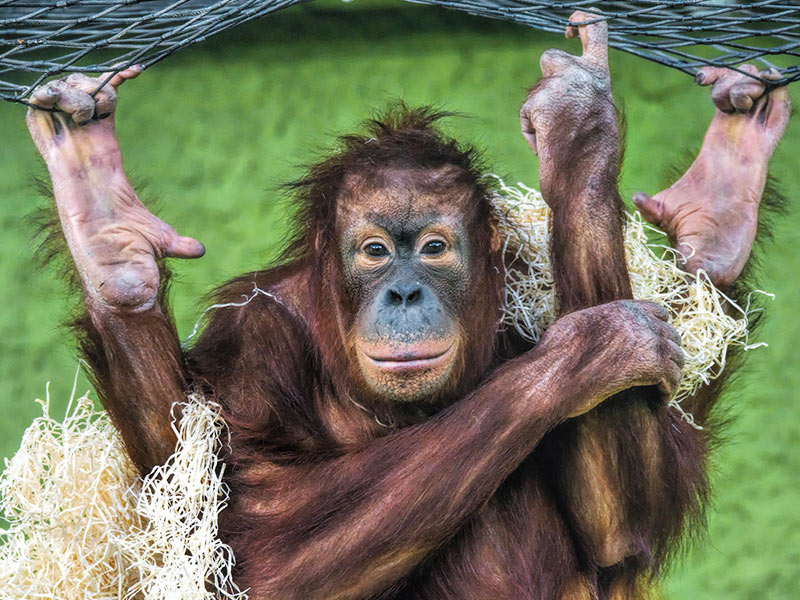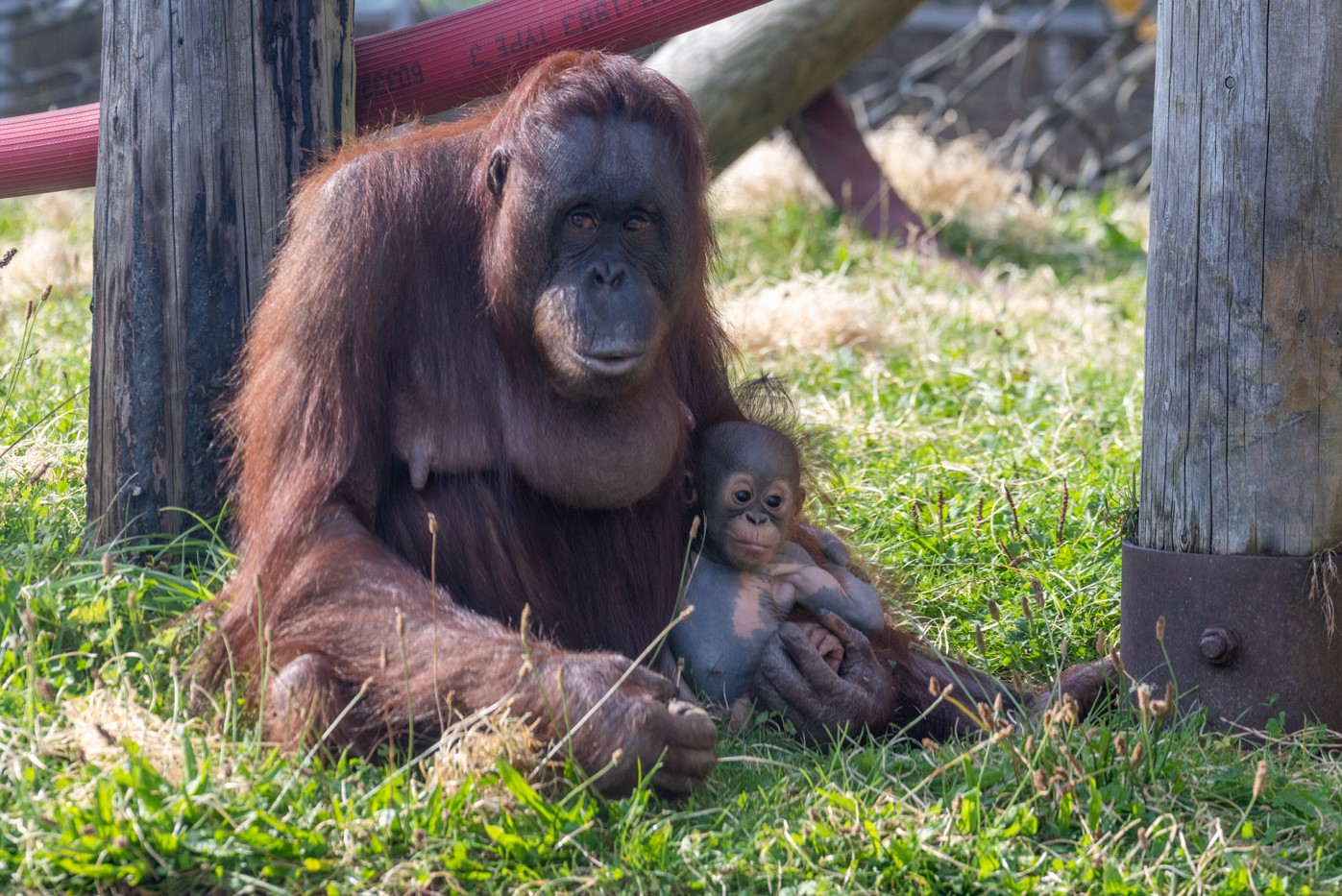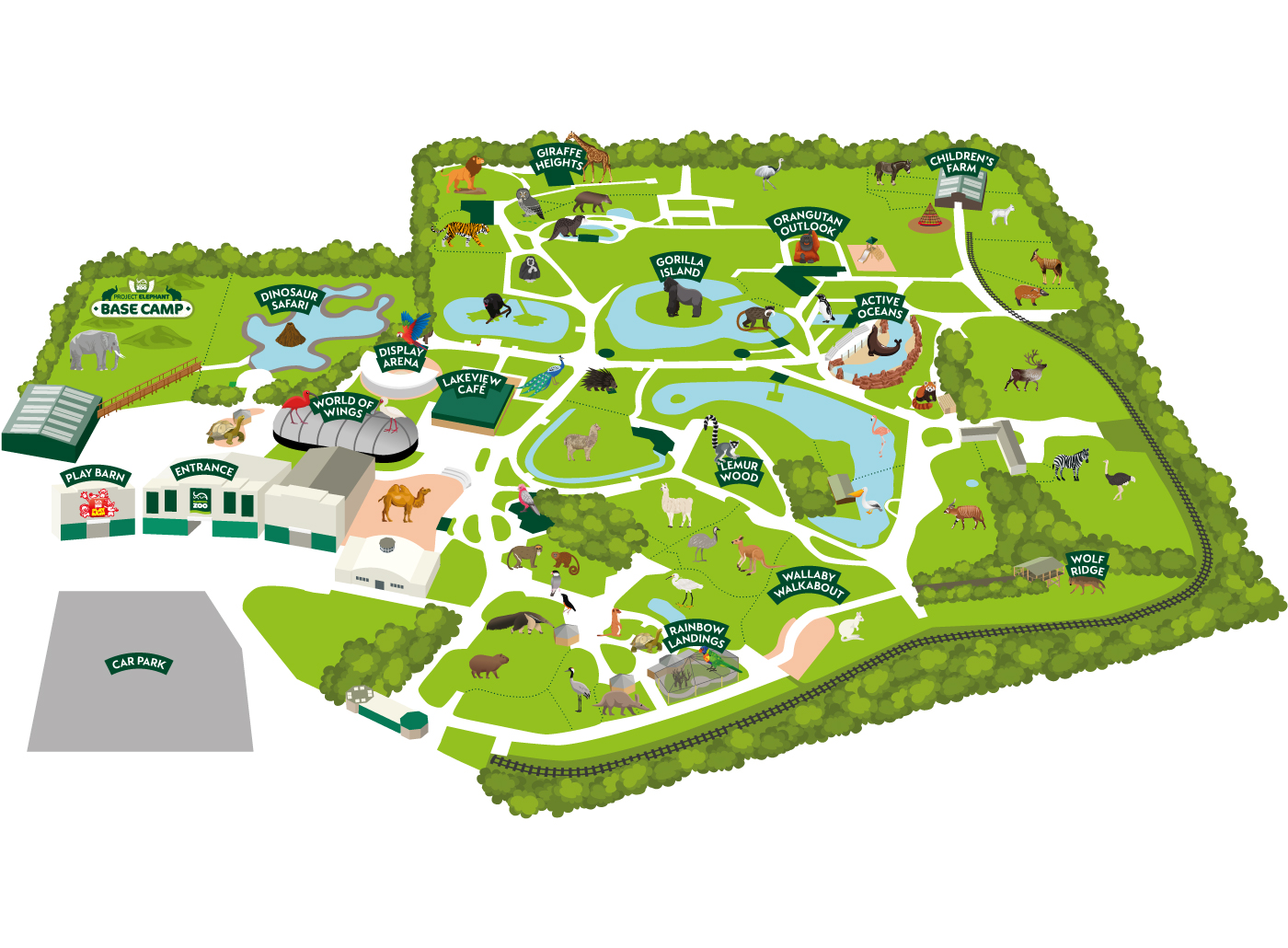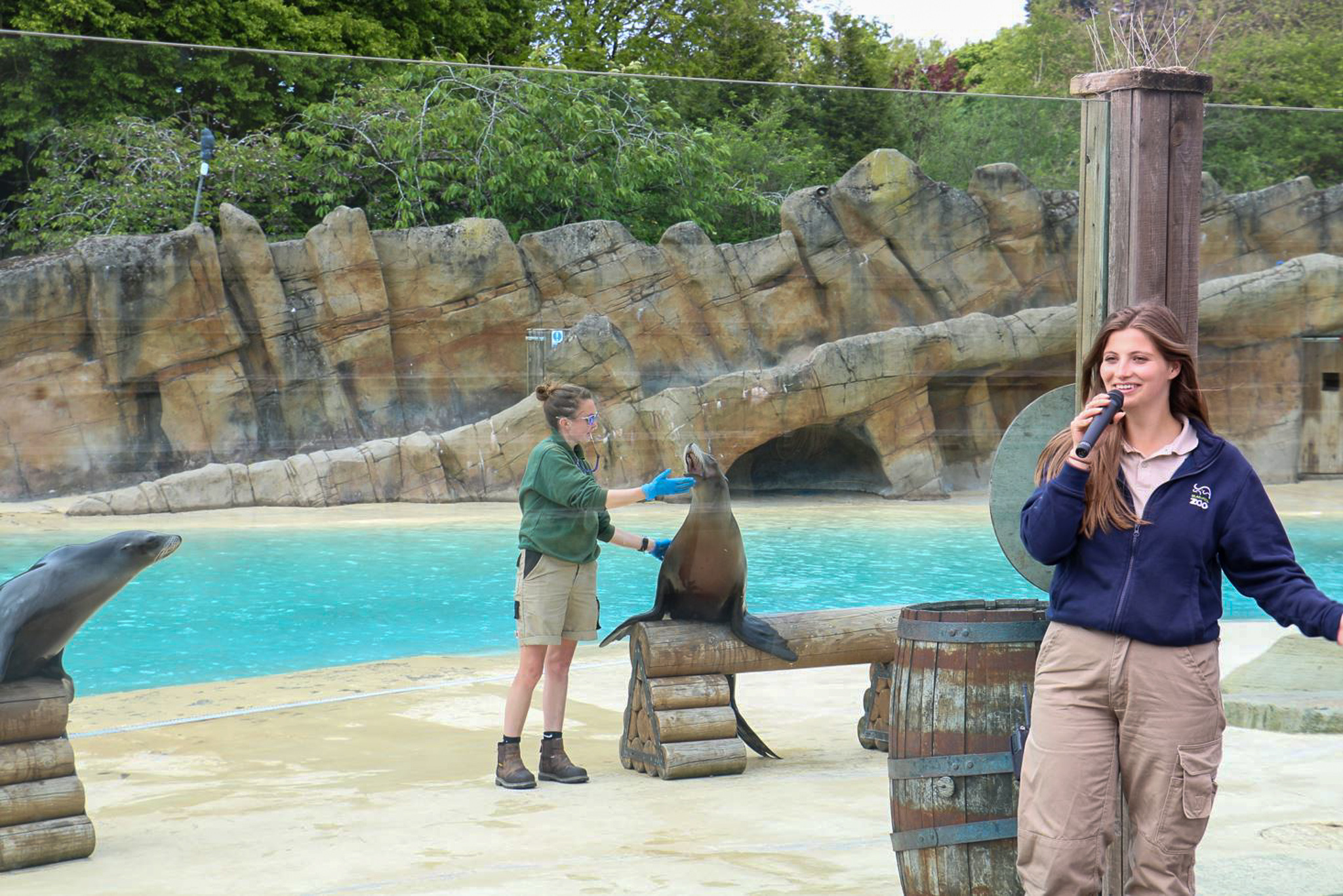Blackpool Zoo’s group of orangutans comprises of male Kawan, sisters Cherie and Summer, female Jingga and the first baby to be born in over 20 years to Jingga and Kawan, a healthy baby boy born on 14th June 2023. Another baby boy, Rufus, was born to Summer and Kawan in 2024.
Kawan was selected to form a breeding group at Blackpool Zoo following extensive talks with experts from the European Endangered Species Programme (EEP) and specialist keepers from the UK and beyond. The Bornean orangutan was classified as critically endangered in July 2016 by the International Union for Conservation of Nature (IUCN). This means that this species now faces an "extremely high" risk of extinction in the wild. This makes breeding programmes such as the EEP absolutely vital, and we are hoping that this is the start of a new generation of beautiful Bornean orangutans here at Blackpool Zoo.
Becoming critically endangered in the wild due to deforestation and hunting has brought these stunning red apes to the attention of the world. Although they can live up to 40 years in the wild and up to 60 years in captivity, Bornean orangutans are virtually solitary, unlike most other primates. They live in very small groups, usually only a female and her dependent offspring. Males only ever spend about 10% of their lives with other orangs. This leaves them very vulnerable to capture or destruction in their native habitat which is disappearing quickly to make way for more commercial forests.
Scientific tests have shown that orangutans share around 97% of the same DNA as humans. This is also shown by the fact that orangutans use tools for such tasks as poking into holes to remove insects. Male orangutans have large cheek pads which increase in size as they grow older. These show their dominance over other males as well as their readiness to mate.
